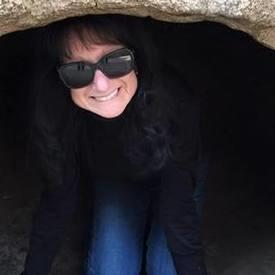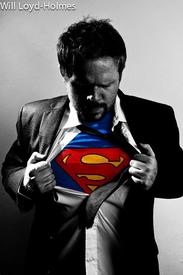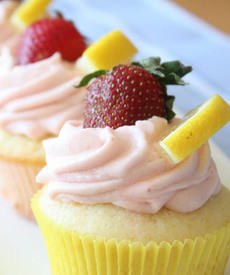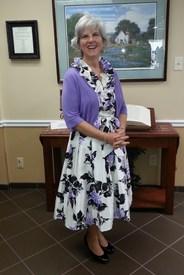Is calorie-counting different from dieting?

ayumi_
Posts: 50 Member
If so how?
I've been lurking these forums for a few weeks and I constantly see people telling others, "don't diet! make it a lifestyle change!" But you're all counting your calories? Not to be judgmental but I don't see how it's different from a diet. Is this just a stepping stone to a healthier lifestyle? Or do you plan to count calories forever?
I've been lurking these forums for a few weeks and I constantly see people telling others, "don't diet! make it a lifestyle change!" But you're all counting your calories? Not to be judgmental but I don't see how it's different from a diet. Is this just a stepping stone to a healthier lifestyle? Or do you plan to count calories forever?
0
Replies
-
For me calorie counting is teaching me about portion size and the calories in certain foods (eg pasta - my idea of a portion had about double the calories in it than I thought). That's allowing me to make healthier choices. I don't think I'll count calories forever but it keeps me focussed whilst I'm getting to target. I do think there's certain foods that I'll weigh probably forever as its easy to eat a lot of extra calories without trying (complex carbs and high fat food in my case). Calorie counting is part of my lifestyle change but to eat the right things more often and to retrain my eating habits.0
-
Dieting sums up calories and exercise in my opinion. A diet gives it bad vibe, if you know what I mean. You're not "dieting", you're just exercising and watching what you eat. People who are maintaining their goal weight are doing exactly what us people trying to lose weight are doing, which is watching what we eat and exercising. The word "diet" just sounds bad all together. Just eat healthy, drink a lot of water, exercise and you will be on your way to losing weight.0
-
When you used to eat overly large portions, didn't you feel really full? Wouldn't that alone be enough to tell you to maybe cut down on your portions?For me calorie counting is teaching me about portion size and the calories in certain foods (eg pasta - my idea of a portion had about double the calories in it than I thought). That's allowing me to make healthier choices. I don't think I'll count calories forever but it keeps me focussed whilst I'm getting to target. I do think there's certain foods that I'll weigh probably forever as its easy to eat a lot of extra calories without trying (complex carbs and high fat food in my case). Calorie counting is part of my lifestyle change but to eat the right things more often and to retrain my eating habits.0 -
There is a difference between 'going on a diet' and 'changing your diet'.
Calorie counting is just a tool I use to help me change my diet. It helps me to learn to control portions and how to eat so that I feel full and satisfied, can still have the occasional treat, but not feel restricted.
"Going on a diet" often involves limiting the types of food one eats, or having rules about when to eat etc.
In a sense, counting calories is really just record keeping. Our memory is not always that good.0 -
Some people here are "dieting" and some are not. For me, a diet is a temporary reduction of calories, or one or more of the macros that can't (or shouldn't be) sustained long term. There's a difference between counting calories and restricting them. Counting them gives you perspective and awareness and helps you make great choices.
For me, I don't really restrict my calories, I just monitor them and make sure my output exceeds my input, whatever it is needed to be to keep me from being hungry. By not allowing myself to become starved, I avoid binging and bad decisions. My intake has changed very little since I started, but my output has changed everything.0 -
If your calorie counting causes you to eat less than you burn - then it's a diet in the sense of weight loss.
But diet is really just the way you eat.
Hence the reason many say make changes you can live with. Actually, many don't say that, they give out all these changes you should make to be "healthy" in their way.
And for far too many - that's not sustainable, during the diet or afterwards.
And yes, many will be calorie counting for a long time - they can't trust their bodies - never should anyway unless you are really knowledgeable about how it can fool you, and work around that.
It obviously was listened to for weight going up, and sadly studies have shown despite weight loss it usually want to go back up anyway, if sizeable loss anyway.
So they likely will need to count calories for a long time. And start getting good at portion control and estimates.0 -
And yes, many will be calorie counting for a long time - they can't trust their bodies - never should anyway unless you are really knowledgeable about how it can fool you, and work around that.
Can you explain more about why they shouldn't trust their bodies, & how it can fool them?0 -
Depends how many calories you're counting. Many people are counting calories in a deficit to lose weight. Some people are counting calories to maintain weight and some people are counting calories to gain weight.0
-
My first post :-)
Good morning all, this is an interesting question. For me, I don't like to use the word "diet" - it somehow gives the impression that it is a short term activity and that when I have reached my "diet goal", I no longer need to "diet". It also seems that "dieting" became a great word to support the products being sold to help you lose weight. It is only in recent years that "healthy lifestyle" is being used more - the majority of adds for healthy food products still use "as part of a calorie controlled diet"!
I do look at the calories in all of the food I eat now - one of my biggest gripes with MyFitnessPal is the inconsistencies I'm seeing across the foods logged (but that is for another day). My view is that if we are to use the term "diet", then calorie counting is part of that. It is not just about portion size as even low calorie food eaten in large quantities won't be that great for you. It's not just calories, I also look at the other content, such as fat, sodium and sugar.
I'm still in the process of getting what I eat "just right" and I balance that out with activities that help me burn more calories than I consume. For me that is working and I know my lifestyle has changed because of it :-)0 -
(quoted from above)
"When you used to eat overly large portions, didn't you feel really full? Wouldn't that alone be enough to tell you to maybe cut down on your portions?"
No, the stomach stretches to contain the food consumed. If it were that simple and eating a adequate portion of food made people full, everyone would be thin! The problem with eating until you feel full is... most of the time you don't feel full until 30 to 60 minutes after you eat. That is why we strive for "portion" control. Even though I have been in maintenance mode for about 18 months, I still have problems every day (and night) with NEVER feeling full.
Yes, calorie counting IS DIFFERENT from dieting. The definition of a diet is "to restrict oneself to small amounts or special kinds of food in order to lose weight." As defined a diet ceases once the weight is lost and goal weight is achieved. Then the dieter returns to an eating routine that is/was perceived as normal and acceptable and in most cases the weight lost returns. A life style change is just that, a change that remains constant, not to revert to a former state.
Just saying... this is my experience and understanding...! :-)0 -
If so how?
I've been lurking these forums for a few weeks and I constantly see people telling others, "don't diet! make it a lifestyle change!" But you're all counting your calories? Not to be judgmental but I don't see how it's different from a diet. Is this just a stepping stone to a healthier lifestyle? Or do you plan to count calories forever?
Yes calorie counting is a diet.
A restrictive diet! If you are setting yourself a target amount of calories to stay under, stay at, or stay over. It's a diet and it's a restriction.
That being said all diets are restrictive (whether it's vegan, kaleo, primal).
And unless it's a style of eating which does not provide all of your nutrients and protects your lean mass and is sustainable then it can be an eating lifestyle (but how ever you wrap it up its a diet)????
All you've got to do is choose the one that's right for you. I personally do not believe there's one diet which will suit everybodys needs. It can sometimes be a bit of trial an error.0 -
I listen to weight loss hypnosis tapes and he refers to eating properly as a "slimming plan". I love that and now think of my diet in that way.0
-
If so how?
I've been lurking these forums for a few weeks and I constantly see people telling others, "don't diet! make it a lifestyle change!" But you're all counting your calories? Not to be judgmental but I don't see how it's different from a diet. Is this just a stepping stone to a healthier lifestyle? Or do you plan to count calories forever?
I'd draw a distinction between "diet" and "a diet", calorie counting has helped me to make more informed choices around my diet, which has helped me lose fat, increase endurance and CV capacity.
That said I'm not particularly religious about measurement, and quite comfortable with a trend rather than spot figures. As long as I'm about right in a week I'm comfortable when individual days go over or wildly under goal.
Equally it's about prioritising what's important. Is it weight loss, sports performance, general health or being able to fit the existing wardrobe?0 -
The difference is in how you look at it. Are you changing your eating habits for life or are you just making temporary changes? The technique is incidental.0
-
Everyone will see it differently - for me they are different in the following ways.
A diet is reducing what you eat for the sole reason of trying to lose weight, a diet is temporary and often faddy.
Counting calories is being aware of exactly what you are eating, and allows you to eat how you like (whether it's a traditionally healthy diet or one that allows for treats and other foods most 'diets' would ban or make you feel guilty about eating) - just in moderation. Counting calories isn't just for people that want to lose weight, it's for people who want to get lean, bulk up, gain weight, athletes training, people recovering from eating disorders etc etc. Counting calories helps you have better and more healthy habits for life.0 -
I'd say the plain simple answer is yes, it is the same, both are restrictions. However calorie counting is more about being able to eat essentially whatever you want, just to be mindful of how much to eat. Which in the end is much less restrictive.0
-
For me the word diet involves restrictions, and that what a lot of us mean when we say "don't diet". I'm maintaining my weight the same way I lost it, by paying attention to my macros, which means I have to pay attention to all my food, including calories. I used to restrict foods "dieting", thinking it was the way to go, until I spent enough time on these forums to figure out TDEE and macros and what calorie level works best for my health, not just my weight. So yes, I'll continue to count because to me it doesn't make any sense not to do what has finally worked.
However, any one of my friends on here would not say I'm on a diet at all. Yesterday was all pizza, sausages, wine and chocolate. And I logged all 3000 cals. (I was only over by a bit.) So yes, I count calories, but I'm sure not on a diet!0 -
When you used to eat overly large portions, didn't you feel really full? Wouldn't that alone be enough to tell you to maybe cut down on your portions?For me calorie counting is teaching me about portion size and the calories in certain foods (eg pasta - my idea of a portion had about double the calories in it than I thought). That's allowing me to make healthier choices. I don't think I'll count calories forever but it keeps me focussed whilst I'm getting to target. I do think there's certain foods that I'll weigh probably forever as its easy to eat a lot of extra calories without trying (complex carbs and high fat food in my case). Calorie counting is part of my lifestyle change but to eat the right things more often and to retrain my eating habits.
I would eat until there wasn't any food left, even if I was full, because that was how it was when I grew up. I had no control over how much food was put on my plate, but you ate everything on your plate and didn't leave the table until you did, because you had to be grateful for the food you were given and it somehow helped starving children in Africa).
Counting calories for me is figuring out portion sizes, pure and simple. While a diet for me involves restricting something and that magically makes you lose weight. I've been on diets in the past with little or no success now it's about just not eating to much.0 -
Absolutely, yes, calorie counting is dieting.0
-
I'd say the plain simple answer is yes, it is the same, both are restrictions. However calorie counting is more about being able to eat essentially whatever you want, just to be mindful of how much to eat. Which in the end is much less restrictive.
Unless you're someone that struggles with portion control, then it's the most restrictive type of diet - different horses for different courses.
You just got to find the style that works for you.0 -
For me "dieting" is something to be done temporarily with temporary results. Calorie counting is understanding the 'energy' my body needs and providing it with said calories so that I can lose/maintain weight. Calorie counting is something I will do long term.
I haven't changed my diet at all, with the exception of being more open to trying new foods, etc. I still eat all of the same foods, just in smaller portions than what I ate previously. Portions that fit within my calorie goal.0 -
I'd say the plain simple answer is yes, it is the same, both are restrictions. However calorie counting is more about being able to eat essentially whatever you want, just to be mindful of how much to eat. Which in the end is much less restrictive.
Unless you're someone that struggles with portion control, then it's the most restrictive type of diet - different horses for different courses.
You just got to find the style that works for you.
Personally I find the idea that being aware of ones energy intake is restrictive to be pretty nonsensical. My goal, given my objectives, is a net of 1960 per day. If I choose to burn a further 1200 on a run then that gives me options. As it worked out yesterday I couldn't physically consume enough to hit goal, today I probably will as I'd only anticipate burning about 400.
Choices, one is not a slave to the numbers that the machine generates.0 -
I'd say the plain simple answer is yes, it is the same, both are restrictions. However calorie counting is more about being able to eat essentially whatever you want, just to be mindful of how much to eat. Which in the end is much less restrictive.
Unless you're someone that struggles with portion control, then it's the most restrictive type of diet - different horses for different courses.
You just got to find the style that works for you.
Personally I find the idea that being aware of ones energy intake is restrictive to be pretty nonsensical. My goal, given my objectives, is a net of 1960 per day. If I choose to burn a further 1200 on a run then that gives me options. As it worked out yesterday I couldn't physically consume enough to hit goal, today I probably will as I'd only anticipate burning about 400.
Choices, one is not a slave to the numbers that the machine generates.
Agreed. There is nothing I am "not allowed" to eat on MFP. I am making choices that swap high calorie foods to lower ones to help me lose weight, but which foods I swap out, and how often is entirely up to me. So it's the least restrictive method of losing weight, for me.
However, "diet" is a term I'm not entirely happy with because it has 2 meanings:
The first meaning is a temporary reduction in food, often including exclusion of food groups and rigid adherence to a set of rules, typically for losing weight but in the case of body builders also for building muscle.
The second is simply the word for the way you eat.
I see calorie counting as a tool to help people manage their weight rather than a diet in itself (after all, you can't eat MFP! ). Some people will not keep the changes they make after they reach maintenance. In these cases, I think the MFP method is very much a "diet" in the first sense. Conversely, many people on MFP stress that this is about making a healthy lifestyle, not a temporary change just to lose weight. I suspect that most people of this mindset will continue making good food choices and checking nutrition labels after they hit maintenance; however, I think it is unlikely that they will continue to log rigorously forever once they have a handle on how much they can eat at maintenance. They may continue for 6 months to a year but lose momentum when they find they don't need to count rigorously any more. For these people, I think it is arguable as to whether the MFP method is a diet in the first sense as yes, the rigorous counting stops, but the healthier food choices stick. Both ways are diets in the second sense, of course. 0
). Some people will not keep the changes they make after they reach maintenance. In these cases, I think the MFP method is very much a "diet" in the first sense. Conversely, many people on MFP stress that this is about making a healthy lifestyle, not a temporary change just to lose weight. I suspect that most people of this mindset will continue making good food choices and checking nutrition labels after they hit maintenance; however, I think it is unlikely that they will continue to log rigorously forever once they have a handle on how much they can eat at maintenance. They may continue for 6 months to a year but lose momentum when they find they don't need to count rigorously any more. For these people, I think it is arguable as to whether the MFP method is a diet in the first sense as yes, the rigorous counting stops, but the healthier food choices stick. Both ways are diets in the second sense, of course. 0 -
I will count calories as long as it has not become a natural way to live. I have to teach it to myself and it takes a very long time... it is a new way of life. I cannot count on myself doing it without a conscious effort. I have a lifetime of bad habits and bad choices to counterbalance...0
-
So why didn't you just try to un-learn those harmful food habits, why turn to calorie counting? I can see how counting calories can make you eat less, but it doesn't address why you felt the need to overeat in the first place. Wouldn't you get the same results by simply deciding to stop getting so overly full? Learning to say no to huge portions because your body doesn't need them? Learning how much food allows you to feel physically good after eating and learning to be okay eating that much? You would eat way less that way, plus you'd actually be addressing the root causes of your overeating.
When you used to eat overly large portions, didn't you feel really full? Wouldn't that alone be enough to tell you to maybe cut down on your portions?For me calorie counting is teaching me about portion size and the calories in certain foods (eg pasta - my idea of a portion had about double the calories in it than I thought). That's allowing me to make healthier choices. I don't think I'll count calories forever but it keeps me focussed whilst I'm getting to target. I do think there's certain foods that I'll weigh probably forever as its easy to eat a lot of extra calories without trying (complex carbs and high fat food in my case). Calorie counting is part of my lifestyle change but to eat the right things more often and to retrain my eating habits.
I would eat until there wasn't any food left, even if I was full, because that was how it was when I grew up. I had no control over how much food was put on my plate, but you ate everything on your plate and didn't leave the table until you did, because you had to be grateful for the food you were given and it somehow helped starving children in Africa).
Counting calories for me is figuring out portion sizes, pure and simple. While a diet for me involves restricting something and that magically makes you lose weight. I've been on diets in the past with little or no success now it's about just not eating to much.
It seems like by counting calories, you're focusing your energy on the wrong things. Like, it makes more sense to me to focus on the habits that got me overweight in the first place (eating large portions because that's what you learned growing up, for example), and learning to change those (starting to say no to extra food if you know you don't need it, paying more attention to your fullness and deciding not to get overly full at meals), instead of relying on an external control mechanism to control my eating.0 -
So why not just try to fix those bad eating habits directly? Why turn to counting calories if it's a crutch you'll have to rely on for the rest of your life in order to maintain a healthy weight?I will count calories as long as it has not become a natural way to live. I have to teach it to myself and it takes a very long time... it is a new way of life. I cannot count on myself doing it without a conscious effort. I have a lifetime of bad habits and bad choices to counterbalance...
Wouldn't it be easier to work on fixing the issues that cause you to overeat, and once those issues are addressed, continue eating a reasonable amount for the rest of your life & losing weight steadily that way?0 -
It seems like by counting calories, you're focusing your energy on the wrong things.
Agreed. Most calorie counters fail, just like any other diet.
Used as a tool to relearn and restructure eating habits, it's powerful. But most people, from what I've seen, don't actually do that.0 -
I agree. It could be a great crutch to show people how much food keeps them feeling good & energetic, and how much is too little, and about how much is too much. It could help people figure out what reasonable portions look like if they have no idea.It seems like by counting calories, you're focusing your energy on the wrong things.
Agreed. Most calorie counters fail, just like any other diet.
Used as a tool to relearn and restructure eating habits, it's powerful. But most people, from what I've seen, don't actually do that.
But most people start to depend on it and eventually come to the conclusion that without it they could never keep their weight at a healthy level or eat reasonably. And to me, that's pretty troubling.0 -
People that count calories ARE addressing their issues of eating too much. This is the way they choose to retrain themselves. Stuff happens in our bodies (within the endocrine system) to make our bodies not really have the full signal. Being able to count calories helps us to know how much we SHOULD be eating to fuel our bodies. It's like an old junk car I once had. The gas gauge didn't work and neither did the odometer. I was basically guessing when it needed gas and how much it needed. My full gauge was broken. Counting calories was my 'odometer' and helped fix my 'gas gauge'. I'm at maintenance and don't really count any more. I recognize what my body needs. So the "dieting" and counting calories was the retraining.0
-
I found that by calorie counting when I was losing weight (which I will call a "diet" since I was restricting my intake below normal levels), I learned a lot. One of the biggest things I learned, and something that I use all the time now, whether or not I actually log food, is general rules for estimating food intake. So I can go somewhere and know roughly how many calories and macros a meal may have, and make decisions based on that information. So if I go to a friends house and they make pasta with store bought sauce, I can decide how much to eat, or what else I would have to do to make it fit in with my other daily choices, and I wouldn't need to actually go to MFP and check it all out.0
This discussion has been closed.
Categories
- All Categories
- 1.4M Health, Wellness and Goals
- 398.2K Introduce Yourself
- 44.7K Getting Started
- 261K Health and Weight Loss
- 176.4K Food and Nutrition
- 47.7K Recipes
- 233K Fitness and Exercise
- 462 Sleep, Mindfulness and Overall Wellness
- 6.5K Goal: Maintaining Weight
- 8.7K Goal: Gaining Weight and Body Building
- 153.5K Motivation and Support
- 8.4K Challenges
- 1.4K Debate Club
- 96.5K Chit-Chat
- 2.6K Fun and Games
- 4.8K MyFitnessPal Information
- 12 News and Announcements
- 21 MyFitnessPal Academy
- 1.5K Feature Suggestions and Ideas
- 3.2K MyFitnessPal Tech Support Questions


















